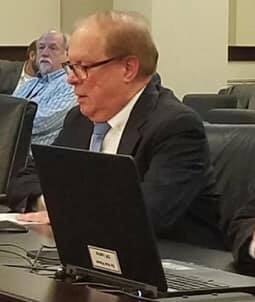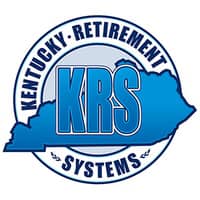

Kentucky Retirement Systems Executive Director David Eager has proposed that lawmakers permanently codify temporary modifications to the open meetings law necessitated by COVID-19.
Eager testified before the Public Pension Oversight Board on June 1.
Among his recommendations: a new law that would authorize the Kentucky Retirement Systems "to readily schedule online, live-streamed meetings in lieu of in-person meetings."
Although a video of Eager's comments is unavailable, Kentucky Government Retirees' President Jim Carroll summarized the comments in a Facebook post.
On March 30, Governor Beshear signed into law SB 150, the Coronavirus Relief Bill. That bill addressed — among other things — public meetings "*during the pendency of the state of emergency.*"
To reduce the risk to public health, SB 150 authorized video teleconferencing of all public meetings as an alternative to traditional meetings at which both agency members, the public, and the media are physically present.
https://www.facebook.com/419650175248377/posts/649587875587938/?d=n
Other states adopted similar virtual meeting models in response to the pandemic.
But access advocates across the country warned that the duration of the statutory modifications must be limited to the duration of the pandemic.
Eyeball to eyeball meetings — where the media can directly question and probe, the public can hold elected or appointed officials accountable, and supporters or opponents of proposed action can turn out in large numbers to advance their cause — must not, they argued, become another casualty of the pandemic.
As public agencies adapted to the use of video teleconferencing during the COVID-19 crisis, it was all but inevitable that they would advocate for the more "efficient" meeting model that keeps the public at a "safe" distance.
Because our law clearly favors physical presence at public meetings, the Kentucky Open Government Coalition opposes Eager's proposal and any other attempt to irrevocably dilute the right of public participation at in-person meetings once the state of emergency is lifted.
In an opinion issued shortly after our open meetings law was enacted, Kentucky's courts recognized that the law is "designed to require governmental agencies to conduct the public's business in such a way that the deliberations and decisions are accomplished in an atmosphere wherein the public and the media may be present."
https://casetext.com/case/jefferson-cty-bd-of-ed-v-courier-journal
Twenty years later, former Legislative Research Commission Director Don Cetrulo asked then Kentucky Attorney General Ben Chandler to issue an advisory opinion on whether a legislator could vote or participate in his or her official capacity without being physically present.
https://ag.ky.gov/Priorities/Government-Transparency/opinions/Opinions%…
Chandler responded with an unequivocal "no." The law, he said, "disfavors electronic participation in lieu of physical presence."
COVID-19 *temporarily* changed that.
Eager, and no doubt others, would have lawmakers permanently enshrine virtual meetings — temporarily necessitated by COVID-19 — in the law and establish a preference for remote participation.
They will no doubt defend a permanent modification to the law as a cost-saving measure intended to reduce their administrative burden and promote efficiency.
But Kentucky's court have long recognized that the public's right to know under the open meetings law "transcend any loss of efficiency."
https://casetext.com/case/lexington-herald-leader-v-univ-of-ky
Lawmakers should not yield to their entreaties.
Instead, they should bear in mind the words of their predecessors who, in enacting the law, declared: "The people of this Commonwealth do not yield their sovereignty to the agencies which serve them; the people, in delegating authority, do not give their public servants the right to decide what is good for them to know; the people insist on remaining informed so they may retain control over the instruments that they have created."
As we approach the next legislative session, we must remain vigilant. Eager and the Kentucky Retirement Systems are almost certainly not alone in their desire to distance themselves from the constituents they serve by means of permanently authorized "virtual meetings."


